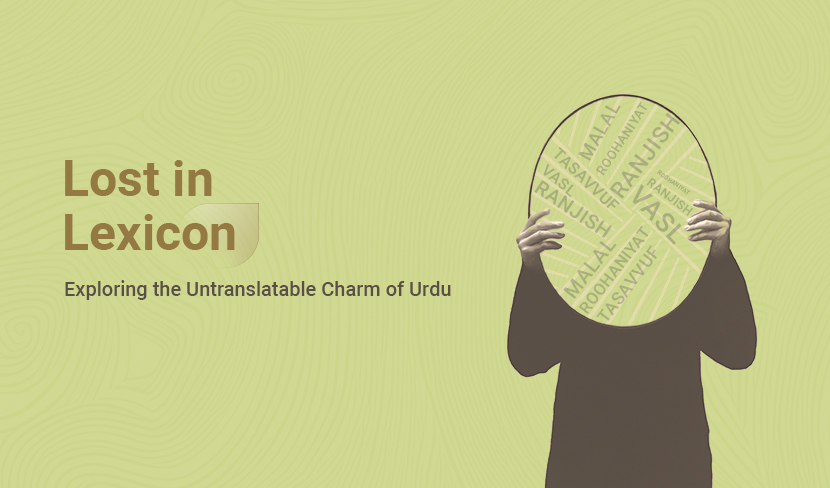زیادہ تلاش کیے گئے الفاظ
محفوظ شدہ الفاظ
کِھسیانی بِلّی کَھمبا نوچے
جسے غصہ آرہا ہو وہ دوسروں پر اپنی جھلاہٹ اتارتا ہے، بے بسی میں آدمی دوسروں پر غصہ اتارتا ہے، شرمندہ شخص دوسروں پر اپنی شرمندگی اتارتا ہے، کمزور کی جھنجھلاہٹ
چَمَنِسْتان
ایسا باغ جہاں پھول کثرت سے ہوں، ایسی جگہ جہاں دور تک پھول ہی پھول اور سبزہ سبزہ نظر آئے، گلزار، گلستان، باغ، پھولوں کا قطعہ، سبز کھیت
From Hawā to Hawā’ī

No, we’re not taking you to the islands of Hawai‘i.
We’re talking about the Urdu word hawā — the wind.
Not its role in sustaining life — that, of course, you already know.
Our focus here is on the linguistic and poetic journey of this word in Urdu: its meanings, moods, and the many ways it drifts through idioms, poetry, and everyday speech.
The Origins and Essence of Hawā
The word hawā (ہوا) comes from Arabic.
In Urdu, its simplest meanings are:
• Wind, air, breeze — the invisible current that moves and breathes life into the world.
But Urdu, with its flair for metaphor, did not stop there.
Hawā took on emotions, intentions, and even moral shades.
It can mean:
• Lust, desire, wish, longing, love
• Vanity, pride, self-conceit
• Even greed — depending on the context.
A close synonym is bād, as in bād-e-sabā — the delicate morning breeze that so often flutters through Urdu verse.
“Hirs-o-Hawā” — Greed and Desire Entwined
In Urdu, the compound hirs-o-hawā (حرص و ہوا) — literally “greed and desire” — captures the human craving that drives and deceives.
Poet Nazeer Akbarabadi, ever wise and worldly, warned against it in his timeless Banjārah Nāmah:
ṭuk hirs-o-havā ko choṛ miyāñ mat des bides phire māṛā
qazzāq ajal kā luuṭe hai din rāt bajā kar naqqārā
O friend, give up greed and desire;
The robber named Death plunders day and night, beating his drum of doom.
And then there is āb-o-hawā (آب و ہوا) — literally “water and air,” meaning climate — a reminder that language too lives and changes within its own atmosphere.
Hawā’ī — Born of Air, Borne by Imagination
From hawā came hawā’ī (ہوائی) — literally “of air.”
Yet in Urdu, this airy adjective took flight in many directions:
• Aerial, air-borne — as in hawā’ī jahāz (aeroplane)
• Baseless, imaginary — as in hawā’ī (a rumour)
As one poet playfully suggests:
mujh meñ aur un meñ sabab kyā jo laṛā’ī hogī
ye hawā’ī kisī dushman ne uḍā’ī hogī
What cause could there be for quarrel between us?
Some enemy must have spread this rumour on the air.
The plural hawāiyān (ہوائیاں) brings yet more nuance:
• A pale or drained face
• Panic or shock — as in us ke munh par hawāiyān uṛ rahi theen
(He turned pale with fear)
Idioms That Breathe Hawā
Few words are as lively in Urdu idioms as hawā.
A few favourites:
• hawā bāndhnā — to brag, to boast
• hawā ke ghoṛe par sawār honā — to rush headlong, to act hastily
• hawā se bāteñ karnā — to move or fly swiftly
• din hawā ho jānā — for time to pass quickly , it reminds me of a shair by
Mādhav Rām Johar’s couplet
ab itr bhī malo to takalluf kī bū kahāñ
vo din havā hue jo pasīna gulāb thā
“Even if you wear perfume now, it only smells of pretence;
Gone are the days when even our sweat smelled like roses.”
It’s often quoted to express how natural sincerity and purity have been replaced by artificiality or affectation.
When Ghalib Met Science
And then, there is Mirza Ghalib — who could turn physics into poetry.
In this couplet, he contemplates the transformation of matter — water becoming air — and turns it into a sigh of frailty and wonder:
zo.af se girya mubaddal ba-dam-e-sard huā
bāvar aayā hameñ pānī kā hawā ho jānā
From weakness, my tears turned into cold breaths;
Thus I came to believe that water can indeed turn to air.
A moment of human exhaustion becomes an elegant metaphor for evaporation — for the subtle alchemy of emotion and element.
In its journey from hawā to hawā’ī, we witness how Urdu transforms the simplest of words into vessels of imagination — how language itself breathes.
Delete 44 saved words?
کیا آپ واقعی ان اندراجات کو حذف کر رہے ہیں؟ انہیں واپس لانا ناممکن ہوگا۔






